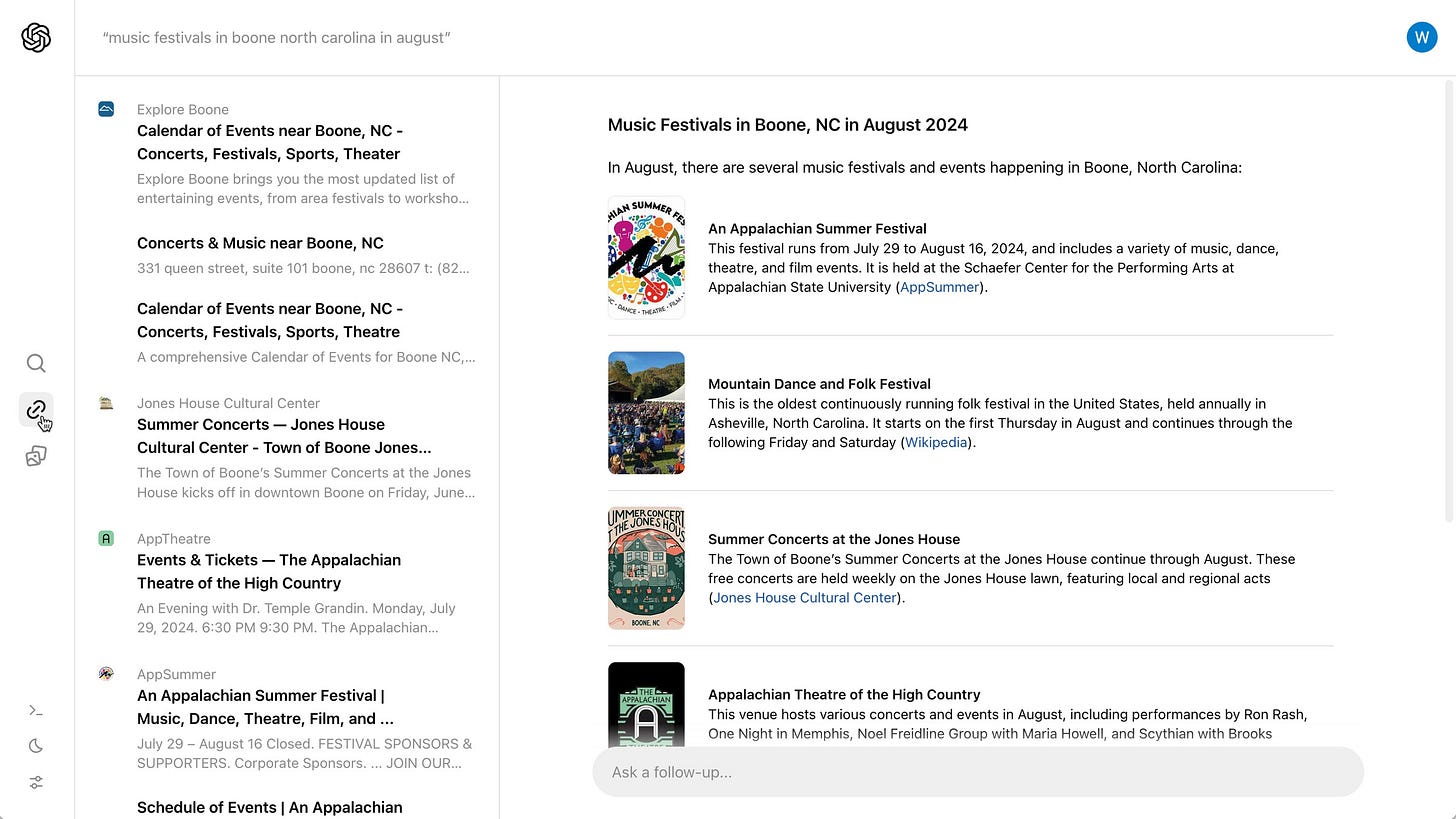OpenAI announces SearchGPT, its AI search engine
OpenAI's SearchGPT Is a Declaration of War Against Google, Perplexity
Image:OpenAI
🚀 Exciting News from OpenAI! OpenAI has announced its much-anticipated entry into the search market with SearchGPT, an AI-powered search engine offering real-time internet access.
💡 Highlights:
OpenAI introduced SearchGPT, an AI-powered search engine designed for real-time information access, built on the GPT-4 model.
It is initially available to 10,000 test users, aiming to refine search results with brief descriptions and relevant links.
Users can ask follow-up questions or access more related links easily with a sidebar, plus there's a mysterious "visual answers" feature.
OpenAI is working with news organizations and external partners to ensure accurate and controlled content, as SearchGPT is tested for a broader launch.
SearchGPT begins with a large textbox asking users, "What are you looking for?" Instead of providing a plain list of links, it organizes and contextualizes the information. For example, it can summarize findings on music festivals, presenting short event descriptions followed by attribution links.
In another scenario, it explains when to plant tomatoes, detailing different varieties of the plant. Users can ask follow-up questions or explore other relevant links through a sidebar. SearchGPT also features "visual answers," though OpenAI has yet to elaborate on how this works.
An example of SearchGPT query. Image: OpenAI
SearchGPT is just a “prototype” for now. The service is powered by the GPT-4 family of models and will only be accessible to 10,000 test users at launch, OpenAI spokesperson Kayla Wood tells The Verge. Wood says that OpenAI is working with third-party partners and using direct content feeds to build its search results. The goal is to eventually integrate the search features directly into ChatGPT.
It’s the start of what could become a meaningful threat to Google, which has rushed to bake in AI features across its search engine, fearing that users will flock to competing products that offer the tools first. It also puts OpenAI in more direct competition with the startup Perplexity, which bills itself as an AI “answer” engine. Perplexity has recently come under criticism for an AI summaries feature that publishers claimed was directly ripping off their work.
SearchGPT’s “visual answers” feature showcases an AI-generated video from OpenAI’s Sora, via YouTube.Image: OpenAI
In a sign of the high stakes in the search wars, Google’s stock tumbled Thursday afternoon within minutes of OpenAI making its much-expected foray into search. Google’s shares ended the day down 3% at $169.16.
But does Google’s blip mean the AI search wars are already won—or lost, depending on the perspective? Not at all.
As of June, after more than a year and a half of assaults on its core search business, Google still enjoyed a global market share of over 90%, as if there is no war. Meanwhile, Microsoft’s Bing has a woeful 3.7% and Perplexity’s is too low to be measured.



